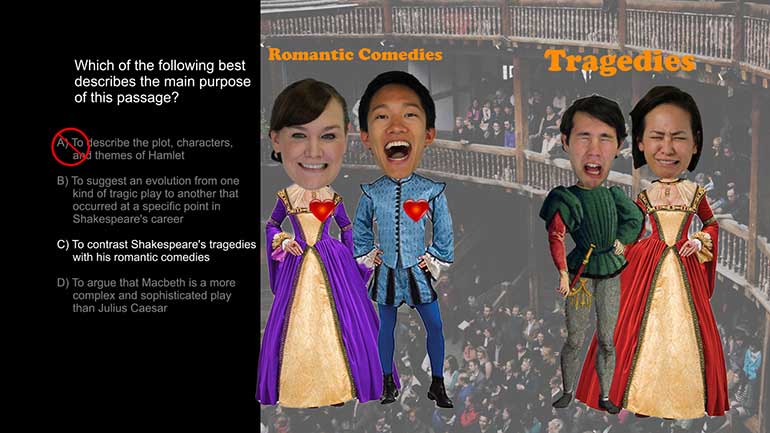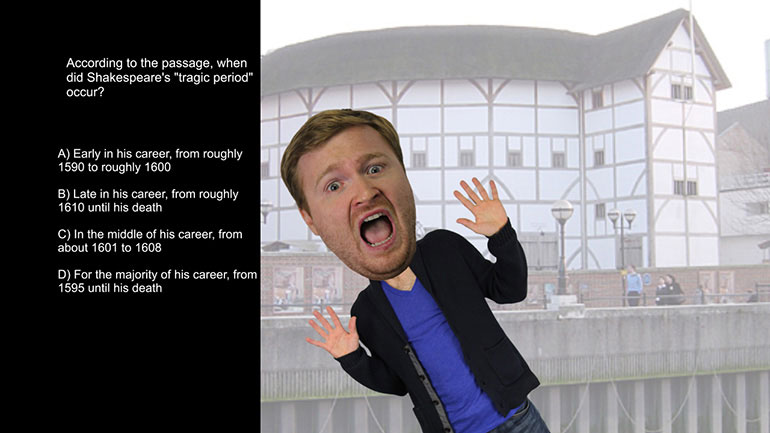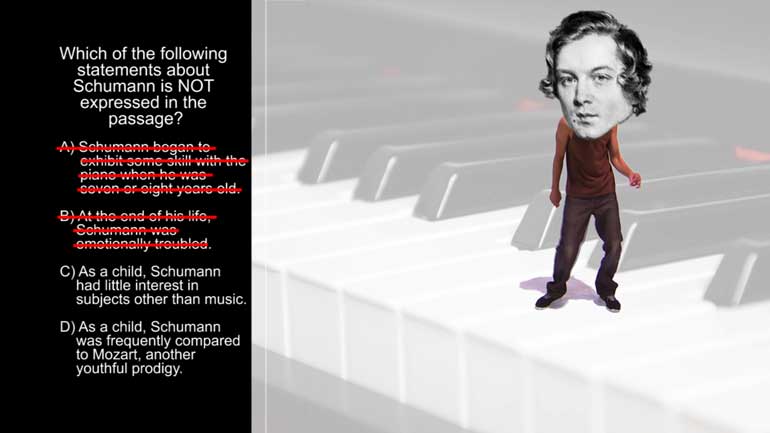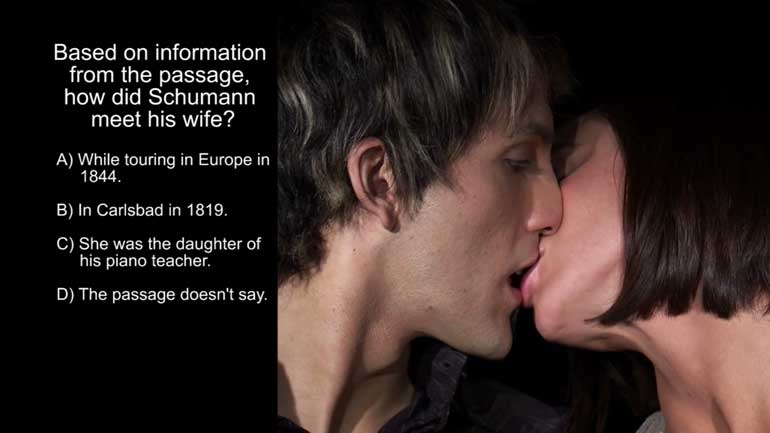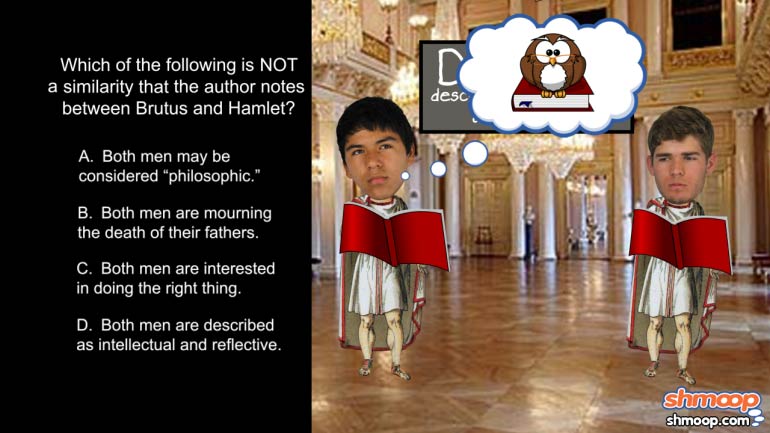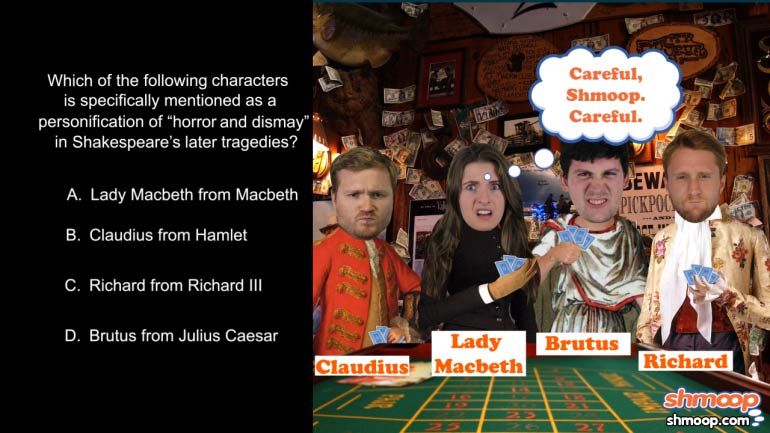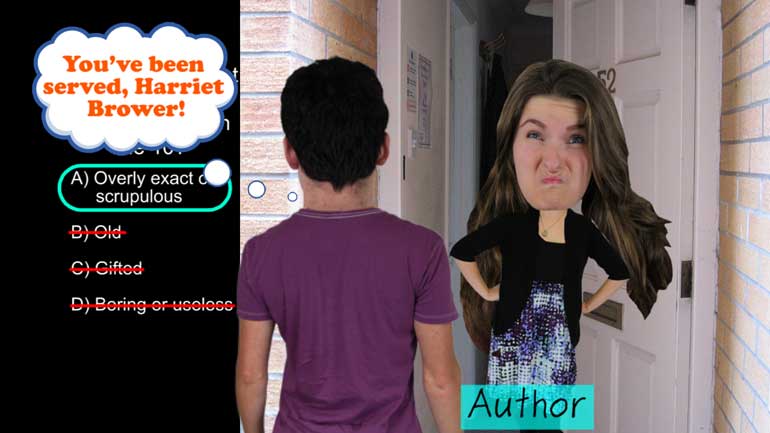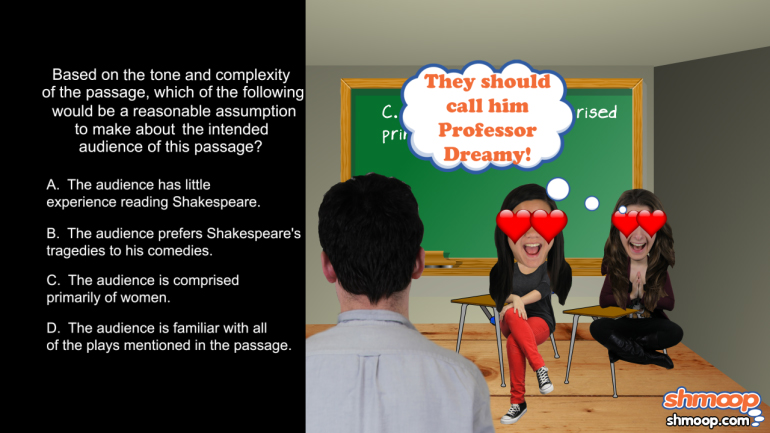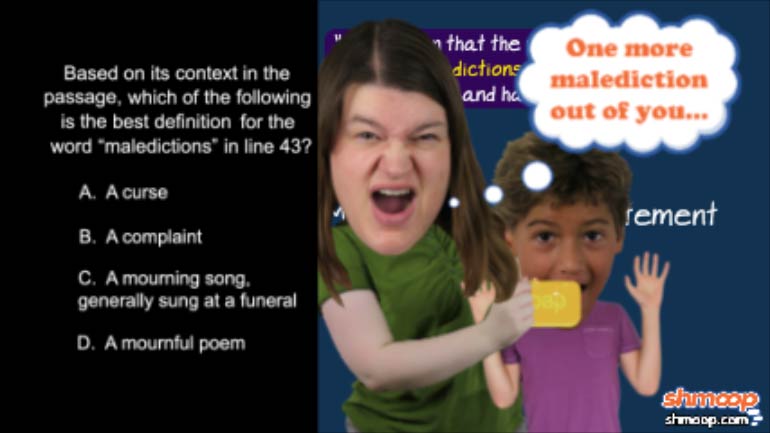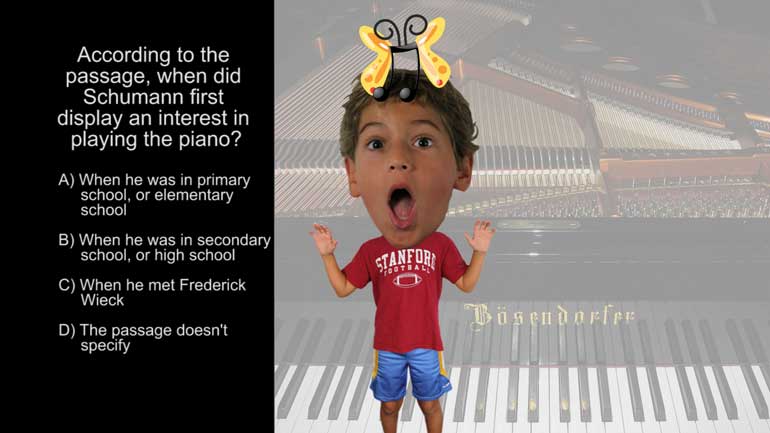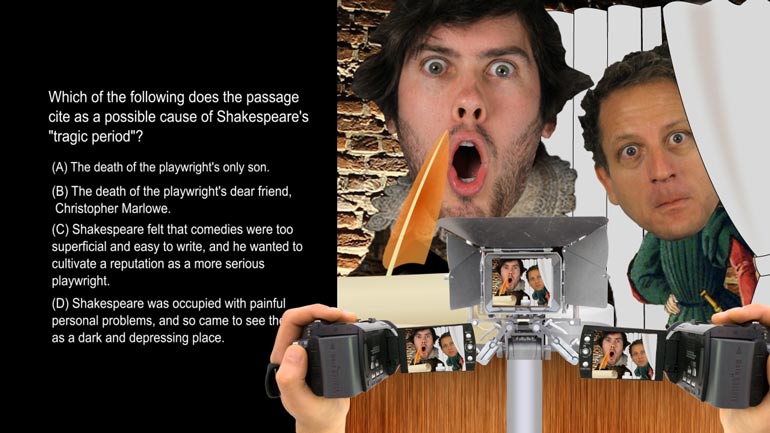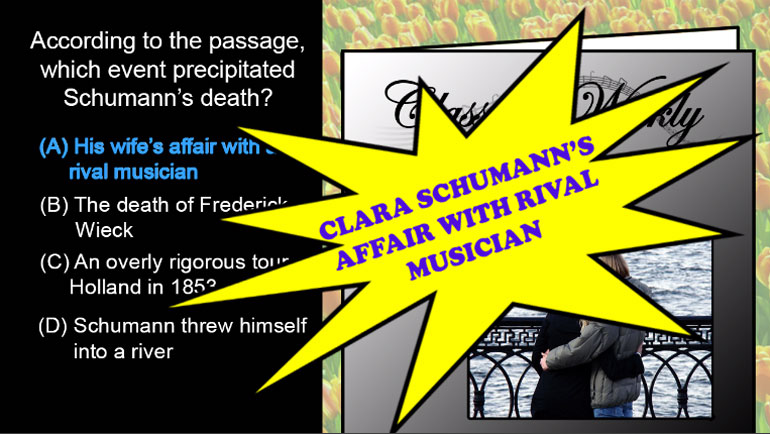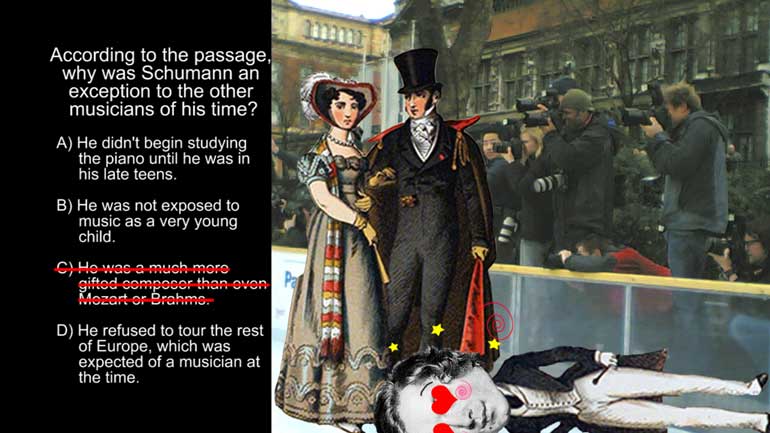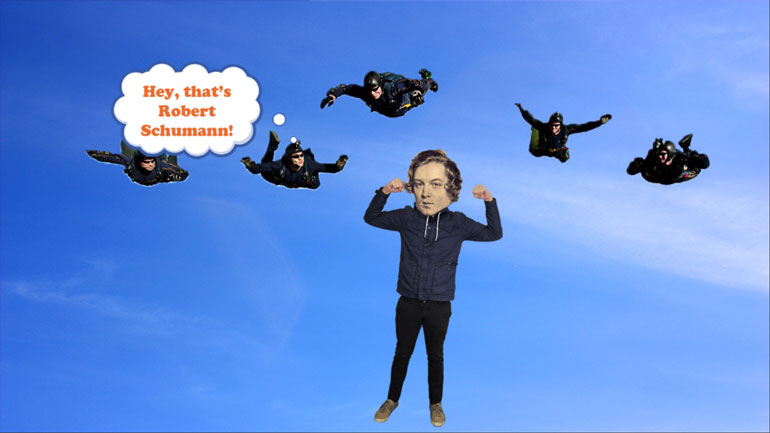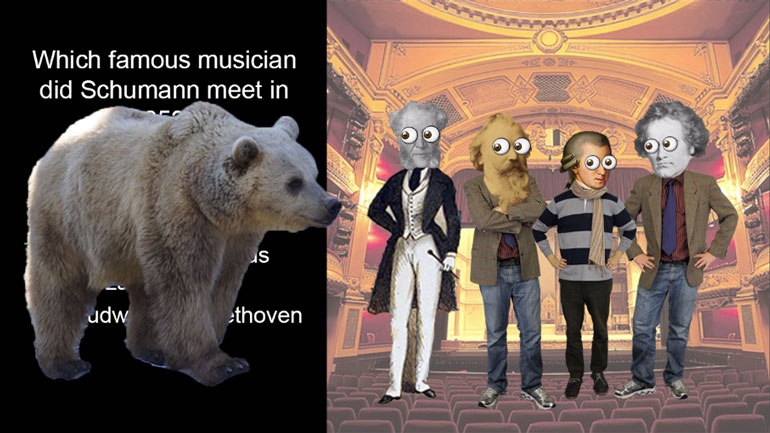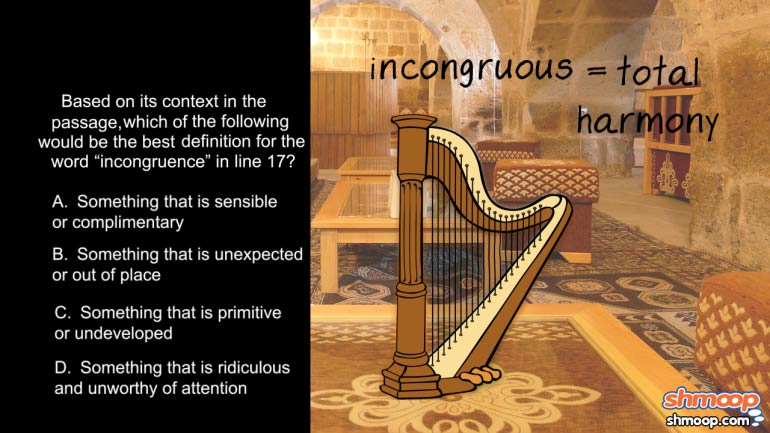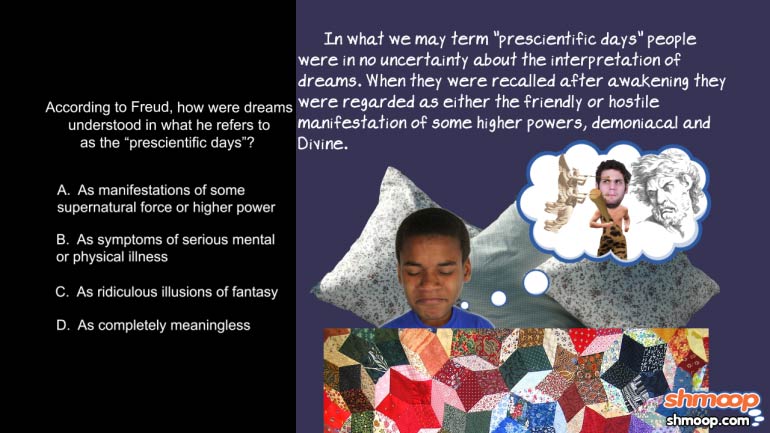ShmoopTube
Where Monty Python meets your 10th grade teacher.
Search Thousands of Shmoop Videos
Humanities Passage Videos 20 videos
ACT Reading: Humanities Passage Drill 1, Problem 1. Which of the following best describes the main purpose of this passage?
ACT Reading: Humanities Passage Drill 1, Problem 2. What distinction does the passage make between Hamlet and Julius Caesar and the other play...
ACT Reading 1.3 Humanities Passage. According to the passage, when did Shakespeare's "tragic period" occur?
ACT Reading 2.1 Humanities Passage 214 Views
Share It!
Description:
ACT Reading 2.1 Humanities Passage. Which of the following statements about Schumann is not expressed in the passage?
Transcript
- 00:03
Here's your Shmoop du jour, brought to you by Schumann. <<shoe-mahn>> He's kind of
- 00:07
like Spidah-maann... except his superpower is having awesome shoes.
- 00:32
Which of the following statements about Schumann is NOT expressed in the passage?
- 00:44
Okay, so if the answer to this one doesn't jump out at us immediately...
- 00:46
...we'll have to solidify the answer choices in our minds, and then go back and skim to
Full Transcript
- 00:50
figure out which one the passage doesn't mention.
- 00:53
Now that we know the passage like the back of our hand...
- 00:55
We'll take a look at choice (A) to see if it's included in the passage.
- 00:58
Oh, sure, we remember this one from lines 13 through 15.
- 01:02
The passage specifically says that Schumann started composing between the ages of 7 or
- 01:07
8, when some of us were more concerned with building tree forts.
- 01:11
Choice (A) is off the list. (B) has to go as well, since the final three
- 01:14
paragraphs fill us in on Schumann's gradual descent into mental illness.
- 01:18
Unfortunately, answer (B) is all too true.
- 01:21
Choice (C) is a little trickier to eliminate.
- 01:22
The passage doesn't specifically say that Schumann was uninterested in subjects other than music.
- 01:28
In the second paragraph, though, it tells us "Robert was a good student in the primary
- 01:32
school, but in no way distinguished himself in his studies."
- 01:36
Afterwards, the passage makes a point of telling us how excited about life Schumann was once
- 01:40
he discovered the piano.
- 01:41
So, even though the passage doesn't say it directly, we can infer that choice (C)
- 01:44
is true... and can be eliminated.
- 01:47
This leaves us with only choice (D) to consider.
- 01:49
Looks like we've done our job correctly, because nowhere in the discussion is Schumann compared to Mozart.
- 01:54
Even though it is true that Mozart was a child prodigy as well, the passage doesn't mention
- 01:58
it, making (D) the correct answer.
- 02:00
Idea for a new reality show: child composers compete against each other... to the death.
Related Videos
ACT Reading 1.5 Social Science Passage. Based on its context in the passage, which of the following would be the best definition for the word...
ACT Reading: Humanities Passage Drill 1, Problem 1. Which of the following best describes the main purpose of this passage?
ACT Reading: Natural Science Passage Drill 1, Problem 1. Which of the following best describes the overall purpose of this passage?
ACT Reading Prose Fiction Drill 1, Problem 1. Which of the following best describes the overall purpose of this passage?
ACT Reading: Social Science Passage Drill 1, Problem 1. According to Freud, how were dreams understood in what he refers to as the "prescienti...
